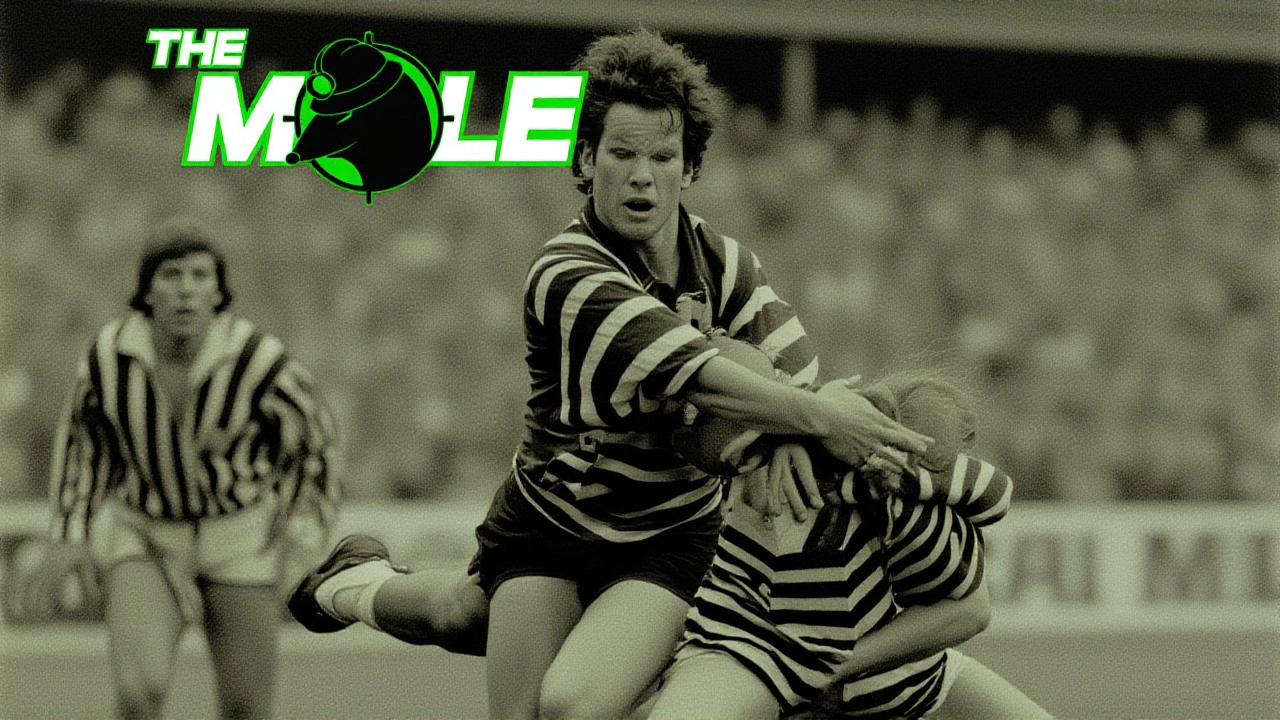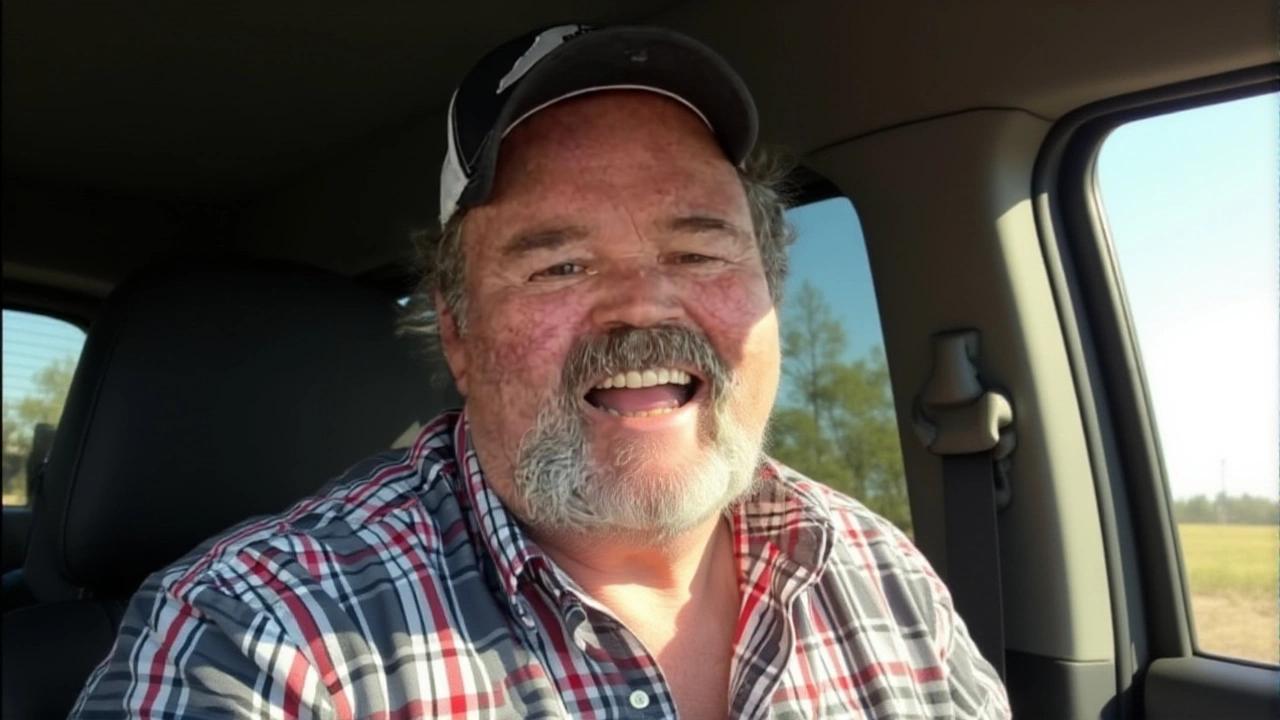It’s quiet in Kernersville now. Gaither "Joe" Walsh, a 65-year-old man who lived quietly among the oak-lined streets of this Forsyth County town, passed away at home on August 19, 2025. No fanfare. No public memorial announced. Just three obituaries—published the same day—confirming what the neighbors already suspected: Joe was gone. His death, though unremarkable in public record, leaves a void only those who knew him best can measure.
A Life Lived in the Shadows of Routine
Gaither "Joe" Walsh was born on November 11, 1959, in Guilford County, North Carolina, just miles from where he’d later make his home. He spent his final decades in Kernersville, a town of about 55,000 people, nestled between Greensboro and Winston-Salem. The obituaries published by EchoVita.com and Legacy.com offer little more than the bare bones: his birth, his death, his father’s passing before him. No mention of a spouse, children, siblings. No career, no hobbies, no volunteer work. Just the quiet dignity of a life lived without headlines.It’s not unusual. In small towns across America, people live full, meaningful lives without ever making the news. Joe Walsh may have been the man who fixed the neighbor’s fence every spring. The one who waved to kids walking to school. The guy who always had a cold beer ready on the porch after a long day. Those things don’t get recorded in obituaries. They get remembered in silence.
The Digital Footprint of a Quiet Passing
The fact that his death was documented across two major obituary platforms—EchoVita.com and Legacy.com—is telling. Both sites are widely used by funeral homes and families to publish memorials. The Legacy.com notices, both bearing the same ID number (59243097), suggest a single memorial page with two slightly different versions, perhaps uploaded by different family members or a funeral director. The EchoVita.com listing carries its own ID (20196541), confirming independent publication.
It’s odd, though, that none mention funeral arrangements. No date. No location. No request for donations. That’s not typical. Most families, even those who prefer privacy, still share basic details about services. The silence here speaks louder than the words. Maybe the family chose to grieve without public ritual. Maybe they’re still too raw to plan. Or maybe, in this digital age, they never intended for Joe’s passing to become a public record at all.
What We Don’t Know—And Why It Matters
Obituaries used to be more than announcements. They were tributes. They told stories. They named the people who loved you. They listed the jobs you held, the churches you attended, the causes you supported. Today, many are reduced to templates: Born here. Died there. Survived by [blank].
Joe Walsh’s obituaries fall into that modern trap. They give us dates and places, but not the texture of his life. Was he a mechanic? A teacher? A veteran? Did he love fishing at High Rock Lake? Did he collect vintage radios? Did he sing in the choir? We’ll never know. And that’s the tragedy—not of his death, but of how little we’re left with to remember him by.
His father, Thomas Walsh, predeceased him. That’s the only family connection offered. No mother named. No wife. No children. That absence is heavy. It suggests a life lived alone—or at least, without close kin to carry his story forward.

A Quiet End in a Quiet Town
Kernersville isn’t a place that makes headlines. It’s the kind of town where people know each other by their cars, their dogs, the way they mow their lawns. Joe Walsh was one of those people. He didn’t need a public farewell. He lived his life in the margins—and perhaps, that’s how he wanted it.
But here’s the thing: even quiet lives leave ripples. The coffee shop owner who remembers his usual order. The mail carrier who knew when he’d be home. The neighbor who borrowed his lawnmower last summer. Those moments don’t show up in digital obituaries. But they’re real. They matter.
His death on August 19, 2025, won’t be recorded in history books. But in the quiet corners of Kernersville, someone will pause this fall when they see his empty porch light. And they’ll think: Joe’s not here anymore.
Frequently Asked Questions
Why are there no details about Joe Walsh’s family or cause of death?
Obituaries are often written by funeral homes based on information provided by next of kin. In Joe Walsh’s case, it appears only minimal details were shared—likely due to privacy preferences, lack of surviving immediate family, or emotional difficulty in compiling the information. Many families today choose to keep personal details private, especially if they’re grieving alone or have complex family dynamics.
Is it common for obituaries to lack funeral arrangements?
It’s unusual, but not unheard of. Families sometimes delay announcing services to allow time for private mourning, especially if they’re relocating or coordinating across distances. In some cases, cremation or private interment may be planned without public ceremony. The absence of details in Joe Walsh’s notices suggests his family opted for a low-key, non-public farewell.
What does it mean that his father is listed as "the late Thomas" but no mother or spouse is mentioned?
The phrase "the late Thomas" implies Thomas Walsh predeceased Joe, which is standard in obituaries. The absence of a mother, spouse, or children suggests Joe may have been widowed, never married, or estranged from family. It’s possible his parents divorced, his mother passed earlier, or he had no surviving close relatives. Without further records, we can only speculate—but the omission is significant in a culture where family ties are typically highlighted.
Why are the obituaries published on the same day as his death?
Many funeral homes and online platforms now publish obituaries within hours of death, especially when families use pre-arranged services or when the death is expected. In Joe Walsh’s case, the immediate publication suggests the family may have had end-of-life plans in place, or the death occurred under medical supervision. It’s also common in rural areas where funeral directors maintain close relationships with residents.
Could Joe Walsh’s death be related to the aging population in North Carolina?
Yes. North Carolina has one of the fastest-growing senior populations in the U.S., with over 1.5 million residents aged 65 or older. Deaths like Joe’s—quiet, unpublicized, occurring at home—are becoming more common as aging in place increases. Without public health data, we can’t confirm cause, but natural causes or chronic illness are statistically likely for a 65-year-old in 2025, particularly without known medical intervention mentioned.
How can people honor Joe Walsh if there’s no memorial service?
Even without a formal service, people can honor him by sharing memories with those who knew him—neighbors, former coworkers, local shop owners. A handwritten note to a friend who knew Joe, planting a tree in his memory, or simply saying his name aloud keeps his presence alive. In small towns, memory is often the only monument we have.
